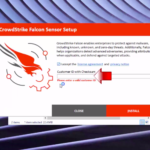How to Get Insurance to Pay for Car Repair
Getting into a car accident can be stressful enough without having to worry about how to pay for car repairs. Thankfully, if you have car insurance, your provider should cover the cost of repairs for damages from an accident that was not your fault. Here’s a comprehensive guide on how to get your insurance to pay for car repair costs after an accident.
Reporting the Accident to Insurance
The first step is contacting your insurance provider to report the accident.
Call Right Away
You’ll want to call them as soon as possible after the accident occurs. Many policies require you to report the incident within 24 hours.
Provide Details
When you call, have information about the accident ready to give, including:
- Date, time, and location of accident
- Other driver’s name, contact, and insurance details
- Police report number if applicable
- Clear description of damages to your vehicle
Request Claim Number
Ask your provider to create a claim number or file a claim for you. This will get the ball rolling to get your car repaired.
Getting Repair Estimate
After reporting the accident, you’ll need to get an estimate for the repair costs.
Visit Body Shop
Take your car to a reputable auto body repair shop to have them assess the damages and provide a detailed repair estimate.
Get Written Estimate
Ask the shop to provide a written estimate that clearly outlines all repair work needed and associated costs for parts and labor.
Send Estimate to Insurance
Provide the full estimate to your insurance company. This will help them determine how much they will cover for repairs.
Insurance Assesses Claim
Your provider will review your claim and estimate to make a determination.
Reviews Estimate
The claims adjuster will evaluate the body shop’s quote to see if the projected costs align with the damage details from the accident.
May Inspect Vehicle
In some cases, the insurance company may want to inspect the vehicle themselves to confirm the repair costs are valid.
Determines Coverage
Based on their policies and your plan details, they’ll decide how much of the estimate is covered.
Getting Repairs Authorized
Once insurance has completed their review, it’s time to get repairs authorized.
Insurance Approves Estimate
If they approve the full estimate amount, you can proceed with repairs at that auto body shop.
Insurance Modifies Estimate
If they make adjustments to lower the approved amount, discuss options with the shop to get the repairs completed for that reduced cost.
Insurance Denies Claim
In rare cases, they may deny the claim if damages clearly were not related to the accident. You can appeal this decision.
Request Authorization
Have the insurance company provide authorization or a guarantee of payment in writing to the repair shop before proceeding.
Handling Repairs and Payment
With insurance covering repairs, the last step is getting your car fixed.
Schedule Repairs
Work with the auto body shop on timing to bring your vehicle in and leave it for the duration of repair work. Rental car coverage can help provide transportation in the meantime.
Pay Deductible
Depending on your policy, you may need to pay a deductible amount to the shop before they’ll begin work. Insurance will cover the remaining costs.
Insurance Pays Shop
Once repairs are complete, the insurance company will pay the agreed upon amount directly to the auto body repair shop.
Review Repairs
When you pick up your vehicle, thoroughly inspect the completed repair work before signing off. Test drive it to make sure everything is working properly before accepting the vehicle back from the shop.
Disputing an Insurance Decision
If your insurance company denies all or part of your claim to cover repair costs, you have options to dispute it.
Request Reassessment
Ask your adjuster to take another look at the damage estimates and reconsider their decision. Provide any additional details or evidence to support your case.
Speak with Manager
If the adjuster won’t budge, request to speak with a supervisor or manager who may be able to overturn the adjuster’s call.
File Complaint
Each state has an insurance regulator you can contact to file an official complaint against your insurance company’s denial.
Pursue Arbitration
Many states offer an arbitration process between consumers and insurers to resolve claim disputes outside of court.
Contact Attorney
For extensive denials, consider consulting an attorney who specializes in insurance claims to review your options. A strongly worded letter from an attorney can sometimes resolve a denied claim.
Key Tips for Getting Insurance to Pay
Keep these tips in mind when starting the insurance claim process:
- Thoroughly document accident details, vehicle damage, repair estimates, and all communication with insurance.
- Be truthful when providing statements about how the accident occurred. Exaggerating or lying could constitute insurance fraud.
- Save all receipts related to the accident repairs for submission to insurance.
- Be responsive to all requests from insurance adjusters to avoid delays.
- Read your policy so you understand applicable coverage, limits, deductibles, and claim procedures.
- Stay patient yet persistent if an initial claim is denied. Keep all appeals professional.
- If repairs exceed your policy limits, be prepared to pay the overage yourself.
Is it Possible to Get Insurance to Pay for Old Car Repairs?
If you get into an accident and pay for repairs yourself, is it possible to submit a claim later and get reimbursed by insurance?
Must Report Timely
Insurance companies require you to report accidents and file claims shortly after they occur. Trying to obtain reimbursement for old repairs is not likely feasible.
No Incentive to Pay
Since your car is already fixed, the insurance company has little incentive to pay out a claim from long ago.
Hard to Prove
Without contemporaneous damage documentation and estimates, it becomes nearly impossible to definitively prove when and how the damage occurred.
Review Policy Details
Look through your policy paperwork for any clauses about claim submission and reporting timing. This can provide definitives on how long you have to submit a claim after an incident.
Unless there are very unique circumstances, once you pay for repairs yourself, you’ve lost the window to have insurance cover those costs down the road. Report accidents immediately to have the best chance of the insurer paying for repairs.
What if I Don’t Have Collision Coverage?
Collision coverage pays for damage to your car from an accident, regardless of fault. What if you only have basic liability insurance without collision?
Claim With Other Driver
If the other driver was clearly at fault, you can try filing a claim directly with their insurance company. Provide evidence like a police report supporting they were liable.
Negotiate With Other Driver
Have a candid discussion with the other driver to see if they will pay for some or all of the repair costs out-of-pocket or through their insurance provider.
Pay Out of Pocket
Without collision coverage or shared fault, you may have to pay for repairs entirely yourself or arrange installment payments with the body shop.
Lawsuit Last Resort
You could take the at-fault driver to small claims court to recoup repair costs if you have documentation supporting their liability. But lawsuits should be a last resort.
Add Collision Coverage
Learn from the experience and consider adding collision coverage to your policy to protect yourself in future accidents. It’s typically affordable and provides peace of mind.
Can I Use Insurance Money However I Want?
You cannot pocket insurance payouts and use the money any way you choose. Here are some guidelines:
- The insurer will only pay the body shop directly, not cut a check to you.
- Any payment must be used for repairs to the damaged vehicle.
- You cannot profit off an insurance claim by keeping leftover payment.
- Using the money for something other than repairs constitutes insurance fraud.
- The insurance company may require documentation like invoices and photos proving repairs were completed.
So while it might be tempting to try to score a few extra bucks from a claim to use elsewhere, that’s illegal. The insurance funds are strictly intended to cover the cost of accident-related auto repairs and restore the car. Misusing payments could land you in legal hot water.
Common Car Repairs Covered by Insurance
Insurance will pay for accident repairs including:
- Body work like dents, scrapes, body panel replacement
- Paint work
- Mechanical repairs if drivetrain or systems were damaged
- Replacing broken lights or mirrors
- Repairing airbags that deployed
- Wheel or tire replacement if damaged in crash
- Window replacement
- Alignment issues resulting from collision
Normal wear and tear maintenance or pre-existing problems not caused by the accident are not covered.
Tips for Working with Body Shops on Insurance Repairs
To make the repair process smooth, keep these tips in mind:
- Get multiple estimates – Prices can vary widely between shops.
- Verify licensing – Make sure shop is properly certified.
- Ask about parts – Will they use original manufacturer or aftermarket?
- Inquire about warranties – Many shops provide a lifetime guarantee on work.
- Read online reviews – Choose a shop with consistently good feedback.
- Communicate with adjuster – Make sure shop connects with insurer to sort out approved costs.
- Review invoice – Don’t sign until you fully understand each item being charged.
Is an Accident With Minimal Damage Worth an Insurance Claim?
For minor accidents with minimal vehicle damage, is it worth submitting an insurance claim? Here are some factors to consider:
Pros of Making Claim
- Don’t pay any repair costs out-of-pocket
- Even small claims can mean premium increases down the road
- Starts a paper trail of accident history with insurance company
Cons of Making Claim
- Small accidents may not meet your deductible amount
- Too many claims can make your policy more expensive
- Minor repairs sometimes cheaper to pay yourself than higher premiums
Every situation is unique. But for scrapes or dents under $500-$1000, it often makes sense to pay yourself rather than risk premium spikes from a claim. Consult your agent or insurer for guidance on when to claim vs. pay yourself.
Can I Get a Rental Car Through Insurance?
If you have rental car reimbursement coverage, insurance will pay for a rental while your car is in the shop for accident repairs. Here’s how it works:
- Coverage varies, but often up to $25-$50 per day for 1-2 weeks
- Insurance will either arrange rental or reimburse you directly
- You’ll need to pay deductible amount per rental terms
- Make sure to rent a similar model as your vehicle
- Save receipts for reimbursement submission
- Return rental when repairs complete, unless extension approved
Having a rental ensures you maintain transportation while your regular vehicle is repaired. But rentals expire after the covered timeframe, so make sure to follow up frequently on repair status.
Final Tips
Getting into any accident is always an unpleasant experience. But understanding exactly how to get your insurance company to pay for repairs can simplify the process and get your car back on the road. Being organized, submitting documentation promptly, clearly communicating throughout the claim, and thoroughly reading your policy will ensure you maximize your insurance coverage. With persistence and patience, you can successfully navigate the claims process.
Conclusion
The process of getting insurance to pay for car repairs after an accident can seem daunting. But by promptly reporting the incident, providing necessary documentation, communicating with your insurer, and following procedures, you can have your claim accepted and your car restored to pre-accident condition. Know your options if an initial claim is denied but avoid exaggerating or misrepresenting anything that could be considered fraudulent. With the right approach, insurance will cover what they are obligated to under your policy so you can put the accident behind you.










